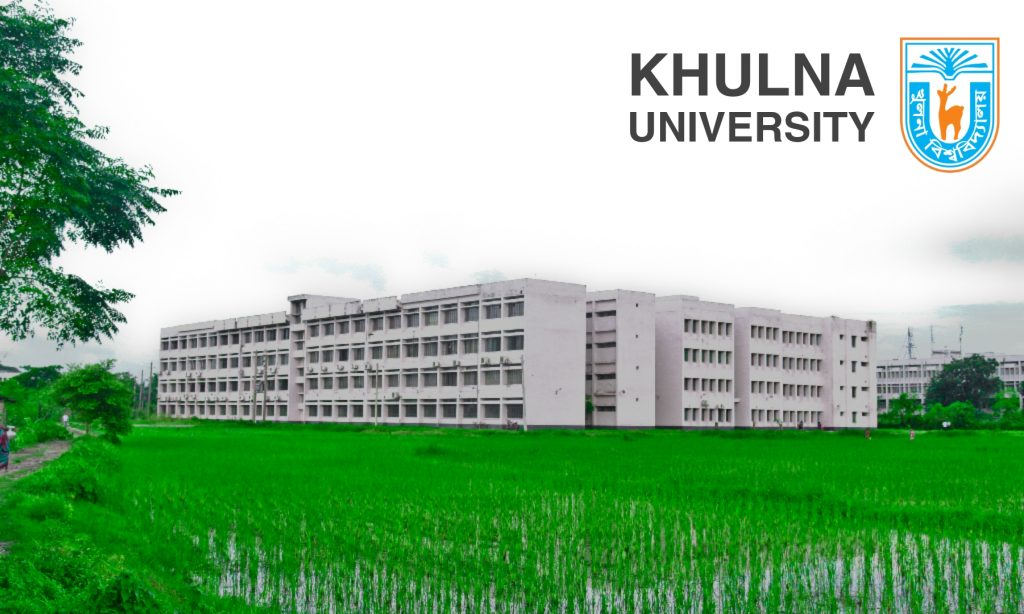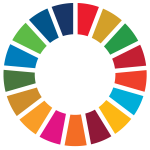Esta web utiliza cookies para que podamos ofrecerte la mejor experiencia de usuario posible. La información de las cookies se almacena en tu navegador y realiza funciones tales como reconocerte cuando vuelves a nuestra web o ayudar a nuestro equipo a comprender qué secciones de la web encuentras más interesantes y útiles.
Integrating the SDGs into
the Existing Graduate Studies Curriculum of Development Studies Discipline in Khulna University
Description
Institution
Khulna University

Organizations/areas of the university involved
Development Studies Discipline
Country
Bangladesh
Link to learn more...
Integration of SDGs contents in the MDS curriculum of Development Studies Discipline in Khulna University.
The Master of Development Studies (MDS) program of Development Studies Discipline in Khulna University started since 2016 in order to produce world-class human resources to meet the global challenges of Sustainable development and a better planet for living. To get the MDS certificate students must have to complete at least 36 credits in 1.5 year consisting of 3 Terms; each term has 6 months duration. In the first two terms the theoretical courses are taught and in the last term students conduct either thesis or internship. The mission of MDS program is to generate knowledgeable, proficient and competent professionals in the field of development. The program will prepare graduates to understand various aspects of advanced development theories, methodologies and practices.In this connection the curriculum of MDS is designed to blending courses from cross-disciplinary perspectives. So it is expected that incorporation of SDGs contents in the existing courses would help to reap the aim of the program in a global manner where the current global action plan would be taught and disseminated in university class rooms.
Action Plan to be taken:
The main aim of this case is integrating the SDGs contents into the existing courses of MDS. To do so the discipline will be involved in the following activities:
1. To arrange a curriculum development seminar with academicians, Govt. and NGOs officials, political leaders, SDG practitioners and other relevant experts for knowledge sharing and idea generation to get feedback and insight of SDGs and their action plan;
2. To incorporate the suitable contents of SDGs proposed by the Seminar participants into the relevant courses;
3. Training of the faculty members / course teachers for SDGs content development and deliver;
4. To design and implement teaching-learning and research contents and tools for the students by the faculty members / course teachers and finalize through arranging a symposium;
5. To foster Graduate research student training; and
6. To ensure students’ collaboration, demonstration, presentation and involvement in SDGs more Student-led activities ie project work, essay competition and MDS Thesis work should be performed.
Results and impact measured or expected
Each year the program intakes 50 students so directly in each year 50 students would involve the curriculum activities. The indirect beneficiaries would be the seminar and symposium participants. The case expects the following outcomes;
1. Awareness raising among the faculties and students;
2. An updated SDGs enriched curriculum with expert opinion;
3. Trained faculty pool having knowledge on SDGs and education nexus;
4. Designed lecture material, assignments, class activities, class projects, study trips, etc.;
5. Up to date teaching-learning and research contents of SDGs in development Studies;
6. Supervised thesis works and essays, and other publication on SDGs in every year; and
7. Critical thinking and change of Knowledge, skills, mindsets about SDGs among students and faculties.
Connection with the SDG framework
The case expects to integrate SDGs contents into the following courses:
DS 5103: Poverty and Inequality: Interventions and Approaches
Goals to be incorporated: SDG 1 & 10
DS 5105: Sustainable Development: Process and Practice
Goals to be incorporated: SDG 2 & 12
DS 5111: Communication for Development: Action, Planning and Evaluation
Goals to be incorporated: SDG 4
DS 5113: Environment, Disaster and Development
Goals to be incorporated: SDG 7
DS 5115: Sustainable Cities and Development
Goals to be incorporated: SDG 11
DS 5207: Legal Aspects of Development: Policies and Practices
Goals to be incorporated: SDG 16
DS 5209: Global Public Health
Goals to be incorporated: SDG 3 & 6
DS 5211: Climate Change Adaptation and Development
Goals to be incorporated: SDG 13 & 14
DS 5213: Land Acquisition, Displacement and Development
Goals to be incorporated: SDG 15
DS 5215: Migration, Refugees and Development
Goals to be incorporated: SDG 8 & 9
DS 5217: International Organizations, Aid and Development
Goals to be incorporated: SDG 17
Barriers and follow up
In order to implement the proposed action plan expert opinion and supervision is badly needed as the discipline faculty pool is relatively young so they need more training and guidance. In this regard, we need expert consultation and supervision to foster SDGs into our existing curriculum. Thus the discipline may face the challenges of paying the costs accrued in the proposed SDGs content incorporation action plan in the curriculum i.e. the cost of seminar, symposium, and training arrangement, development of teaching tools and aids, research etc. So it is expected that if any external organization provides this funding then it would be very pragmatic for the discipline to mainstream the SDGs contents into the graduate curriculum of the discipline as the university lacks the funding for such type of activities.
Transferability of the initiative
There are some universities in Bangladesh that also provides the Development Studies degrees in Bangladesh so it is expected that if we can modify our curriculum with SDGs contents we would be able to share our curriculum with these departments so that they can apply this. Besides, with Khulna University it is possible to impart some of the courses with other social science departments. We would have also the opportunity of shared research programs and curricular activities in the social science school. Whenever we will arrange the curriculum finalization symposium we will invite the department heads and deans from concerned schools and department within and outside Khulna University that would help to transfer our curriculum at a greater extent.
Education 4 SDG funciona gracias a WordPress


